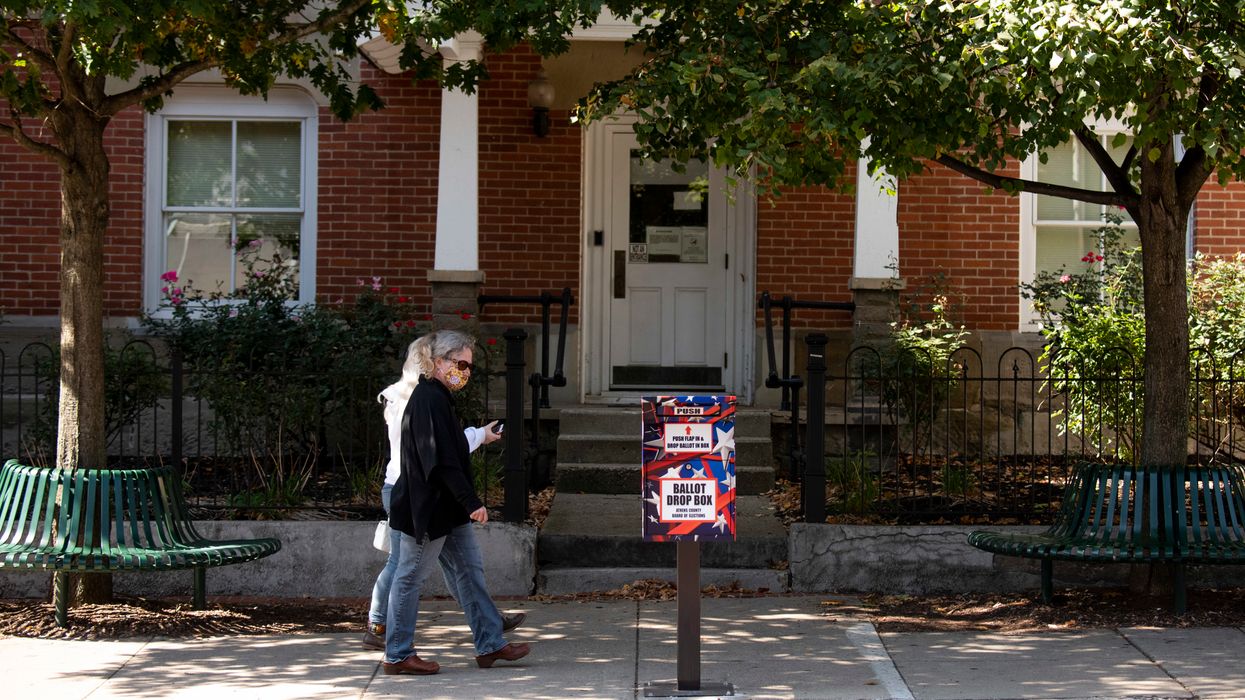There won't be any more ballot drop boxes set up in Ohio, assuring more hassle for as many as 700,000 people who might still cast their votes remotely and early in one of the essential presidential battlegrounds.
Voting rights groups announced Thursday they were giving up the legal battle they've been waging since the summer to get many more bins dispatched. They said it has become pointless to ask the Supreme Court to reverse an earlier appeals court ruling restricting the boxes to just one place in each of Ohio's 88 counties.
Drop boxes for completed absentee ballots have sprouted in plenty of places across the country that have never seen them before, a response by election officials to anxieties about voting in person and relying on the mail during the coronavirus pandemic. But as with so much else about election rules this fall, many of those initial accommodations (including for Ohio's primary) have run into stiff opposition from Republicans claiming the potential for fraud.
That was the argument made by Ohio's top elections official, Republican Secretary of State Frank LaRose, when he decreed in August that state law required that ballot boxes for the general election be made available only at each county's board of elections office.
The NAACP, the League of Women Voters and the A. Philip Randolph Institute, a civil rights group, sued in federal court to allow the counties to have as many boxes as they want. They argued the pandemic made anything more restrictive a form of unconstitutional voter suppression — especially in the most densely populated places. More than 500,000 people live in each of the counties that take in Columbus, Cleveland, Cincinnati, Dayton and Akron.
Two weeks ago, federal Judge Dan Polster blocked the secretary of state's order, concluding more drop boxes were permitted by state law. But he was overruled just a day later by the 6th Circuit Court of Appeals, which said LaRose's curbs were reasonable and that making a change so close to the would pose a security risk.
In a separate lawsuit, brought in state court by the Ohio Democratic Party and opposed by Republicans including President Trump's campaign, an appellate court ruled this month that LaRose could allow multiple drop box sites if he wanted — but wasn't legally compelled to do so.
He has permitted the elections board in Cuyahoga County, home to Cleveland, to place a second, 24-hour drop box outside and across the street from the office — and has suggested other counties can do something similar. But LaRose rejected the Cleveland board's plan to also collect ballots at six public libraries.
Similar restrictions have also been imposed recently in another presidential battleground, Texas, and have also survived state and federal court challenges.
Ohio is one of at least nine states that have used drop boxes for the first time this year. Even before the pandemic, they were part of the election mechanics in about two dozen states.
The pressure for more remote collection options in Ohio has only grown in recent days, with the state suffering a surge of Covid-19 cases and a significant absentee ballot production problem causing delays and printing do-overs for forms in 16 counties, Cuyahoga among them. More than 2.4 million mail-in ballots have been requested and almost 1.6 million had been returned by midweek, smashing previous records for the state so far from Election Day. In-person early voting has also been strong
Polling shows the race for the state's 18 electoral votes essentially deadlocked. Trump carried it last time by a comfortable 8 points, preserving the truism that no Republican has ever won the presidency without winning in Ohio. Democrats are hoping for such a strong come-from-behind Joe Biden victory that the party can pick up a pair of competitive House seats in southeastern Ohio.




















Marco Rubio is the only adult left in the room